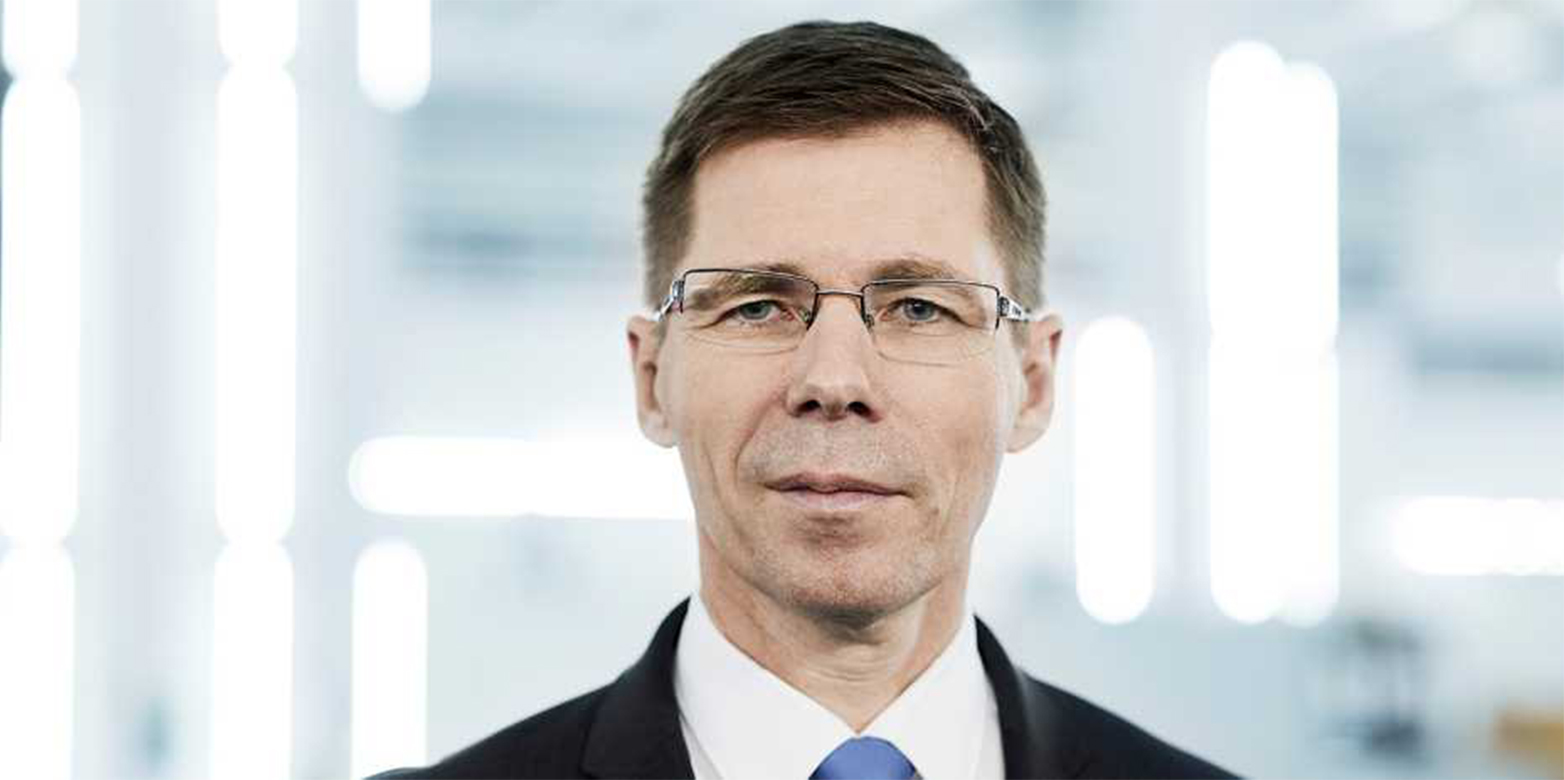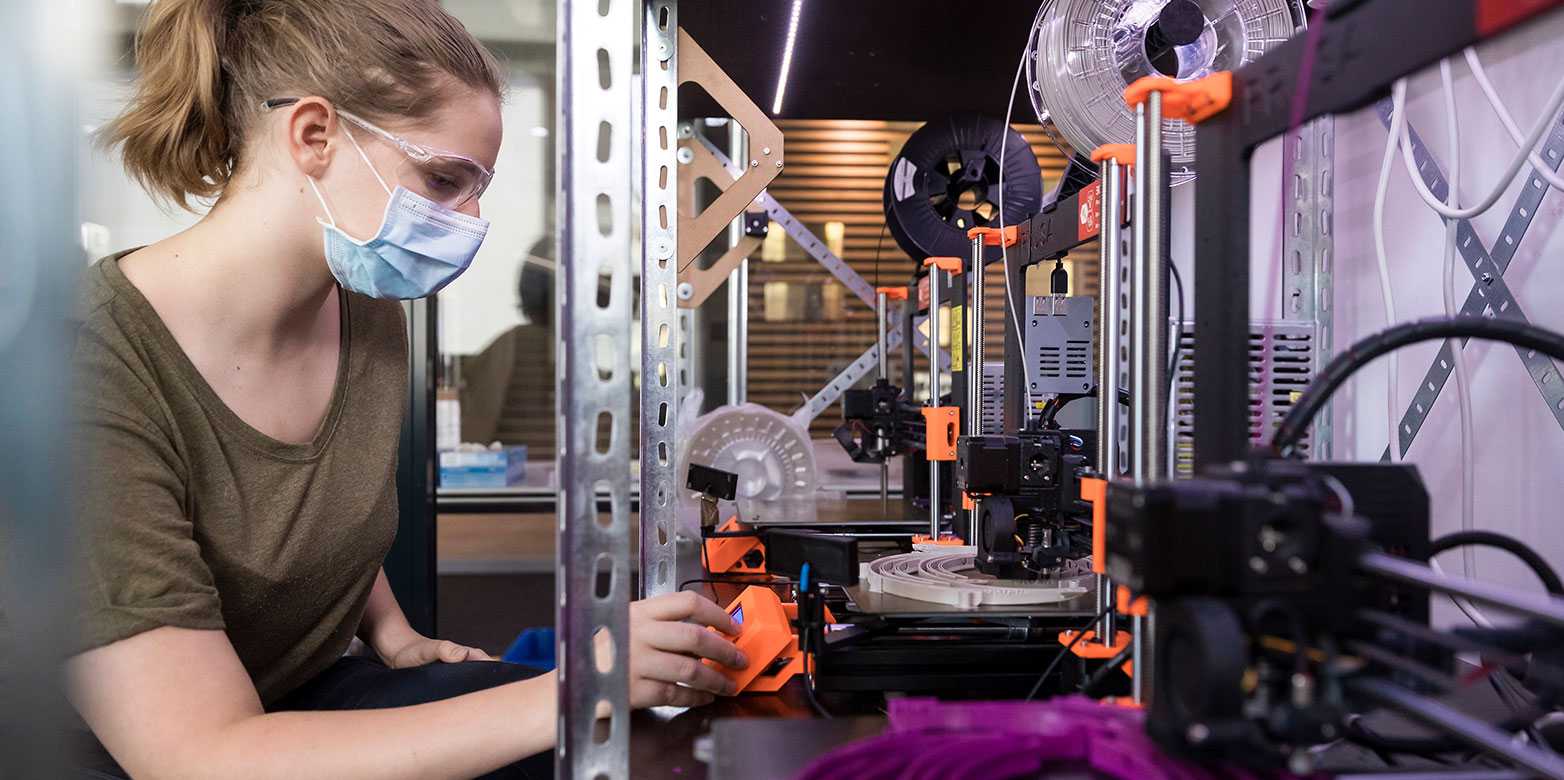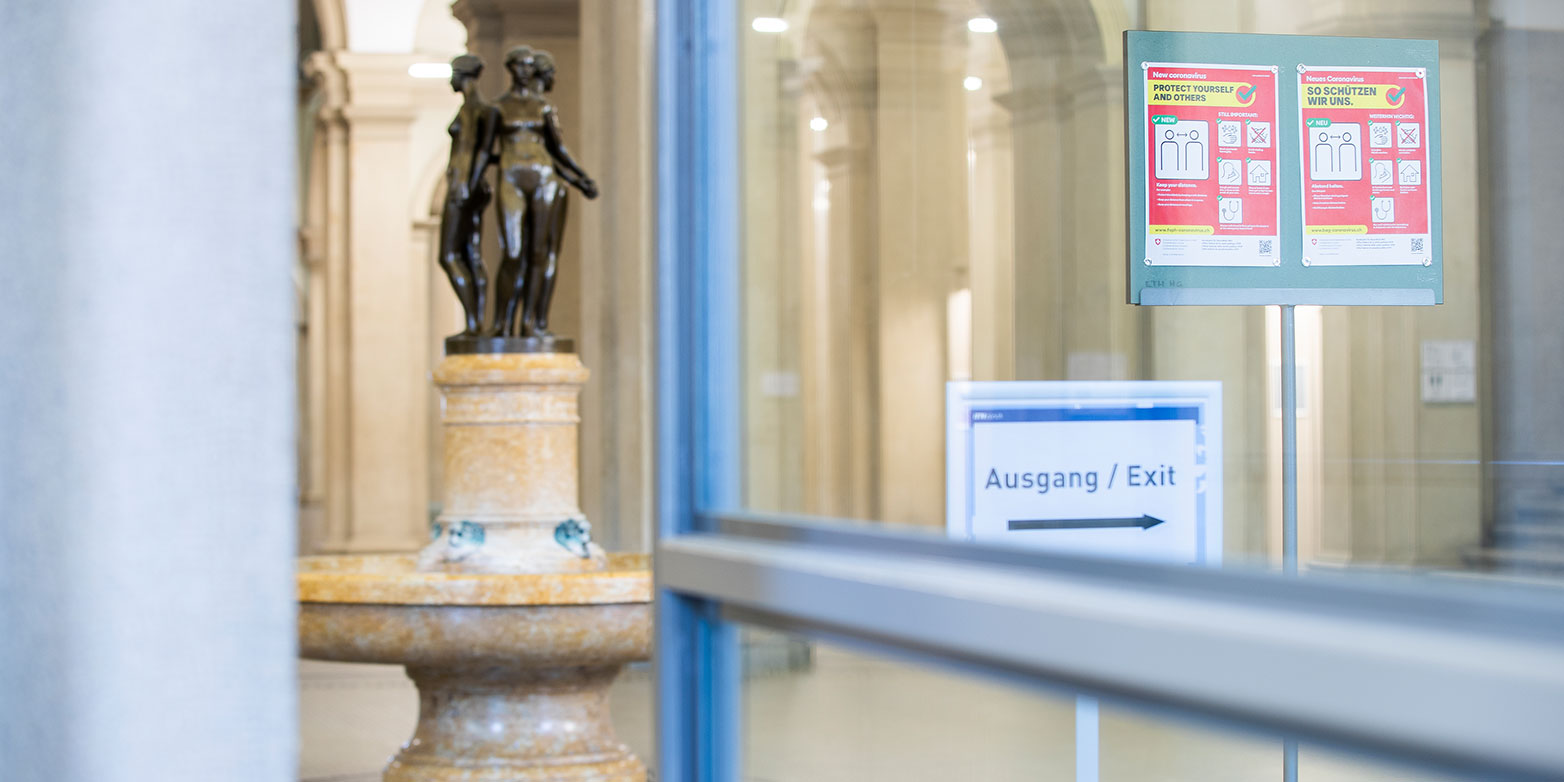“Get up and running quickly, but with extreme caution”
The ETH Executive Board has passed a three-stage plan for resuming normal operations in the areas of research, teaching and administration by the end of 2020. It is important that every step of the process follows the government’s guidance, ETH President Joël Mesot emphasises. The health and well-being of staff and students continue to be the top priority.

Mr Mesot, how do you judge the mood of ETH members after five weeks of lockdown?
Obviously, I have felt the uncertainty and also frustration caused initially by the emergency operations. But at the same time I have been enormously impressed and delighted at how much creativity, spontaneous commitment and team spirit the members of our ETH community have shown in tackling the challenges presented by the coronavirus. For example, teaching was transferred online virtually overnight and a host of new projects were produced from scratch to help find a solution to the crisis. Despite everything, all our administrative processes are also functioning extremely well.
The government is due to ease restrictions across Switzerland from 27 April onwards. Now the university can start to plan the route back to normalisation. What is most important to you: the agony of losing so much valuable time or the relief that ETH will hopefully burst back to life?
Joël Mesot: Definitely the latter: I will be glad to see the end of the period when no one is allowed to work in ETH buildings. Above all, I am thinking about experimental researchers who have had to shelve their experiments. Since laboratory research has been so badly hit during emergency mode, it has now become our first priority in the master plan for the return to normal operations. We are keen to get the laboratories up and running as quickly as possible, but we need to proceed with extreme caution.
What does that mean in concrete terms?
As of next week, the academic departments will gradually allow more experimental research. The intention here is to gain experience of how research activity can continue while respecting all the rules on social distancing and hygiene. I would therefore ask all scientists eager to return to their laboratories as soon as possible, to be patient for just a bit longer.
“proceeding in stages allows us to plan the concrete details of the exit from emergency operations. This is critical for us, given the university’s size and complexity.”Joël Mesot
ETH’s exit scenario is divided into three stages. What’s the reason for this?
Measured by the overall infection rates in Switzerland, we are gradually seeing more light at the end of the tunnel, but we need to be aware that we will still be spending a lot of time in this tunnel! On the one hand, proceeding in stages allows us to plan the concrete details of the exit from emergency operations. This is critical for us, given the university’s size and complexity. On the other hand, proceeding in stages makes it easier for us to regularly check whether we are on the right path and to fine-tune our plan if necessary. The statements made about the first stage, up to the end of this semester, are obviously far more reliable than the projections for the final phase, which starts with the new Autumn Semester and is likely to continue roughly till the end of the year.
So the main priority in the first stage is to quickly step up experimental research. What is the main focus in the second stage?
In this phase – which includes the summer holidays – attention will focus on performance assessments. One of our most important goals since the start of the coronavirus crisis is that none of our students should lose a semester or even a year of study because of the pandemic. For this reason we want to hold end-of-session examinations in August wherever possible. All exams will be held in ETH buildings. Rector Sarah Springman will inform students about the details in a separate communication.
This period up to 8 June coincides with the deadline set by the government for the general opening of universities for students. How is the Executive Board approaching this?
As always, the fundamental decision will definitely be along these lines: during this phase we will manage the return of both students and employees to public workplaces at ETH in a very cautious, controlled and incremental manner.

What can researchers hope for in the second stage?
As long as the situation in Switzerland as a whole continues to develop positively and the government does not pass more restrictive regulations, there is nothing stopping a steady return during this period of our experimental researchers, as well as the spin-offs based at ETH. On the other hand, I would ask all those researchers whose physical presence at the university is not absolutely necessary to continue working remotely from home in phase 2.
What is the situation for technical and administrative staff?
The same rules apply, as long as their physical presence at the university is not necessary. I am well aware that the end of August is a long time to wait. But especially in this transition phase we need to be extremely careful that we do not contribute to an increase in infection rates simply because we drop our guard. The health and well-being of everyone continues to be the top priority.
So that means full steam ahead for ETH operations once the Autumn Semester starts?
“Full steam ahead” is the wrong term to use. The coronavirus will not simply disappear overnight. We need to get used to the “new normality”. I expect we will have to remain cautious for some time to come and retain certain protective measures. If we can manage that, we should hopefully have reached a controlled form of full operations by the end of the year. The transition to the “new normal” is a process that the Executive Board may possibly need to fine-tune repeatedly. I’ll be quite content if our planning works out OK. But please be aware: the coronavirus is not something we can simply put aside: the world will be completely different to some extent. For this reason, it is extremely important for our society and also for ETH in particular to learn from this global crisis and to use it in a productive way. The appropriate framework for this is “rETHink”, our major project for the university’s ongoing organisational development. The experiences we are all having now will feed into this project. With this approach, I am confident that ETH will eventually emerge from this crisis stronger than ever.

Comments
What about international PhD students and postdocs which were supposed to start this summer? When they will be allowed to start their new jobs?